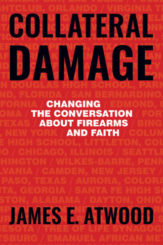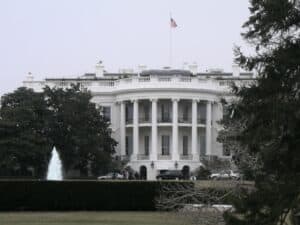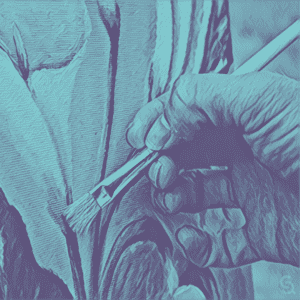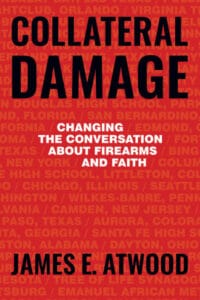
My life as a young pastor, and the trajectory of my ministry, changed almost in the twinkling of an eye one afternoon in 1975. My secretary informed me I had a telephone call from the intensive care unit of a local hospital. One of my parishioners, Herb Hunter, had been shot. He was now at death’s door.
Later I would hear the story—a story that still makes me livid. The teenager who shot Herb had complained to a friend at the local bowling alley that he had no money. His friend reached into his jacket and pulled out a Saturday night special, saying, “Here, go get yourself some money. And when you get some, give me twenty bucks and you can keep the gun.” The teen went to the motel where Herb was working at the front desk and shot him. Herb died two days later from the gunshot wounds.
The day after his funeral, I drove into Washington, D.C., and volunteered my services to the Coalition to Stop Gun Violence. Everything else I was doing at the time no longer seemed relevant. Sitting on my couch and claiming that gun violence was a political matter and that preachers are not trained for such things: well, my Christian faith wouldn’t allow me to get by with that nonsense. I had to do something. Preventing other families and churches from going through what we had gone through became my priority.
Sitting on my couch and claiming that gun violence was a political matter and that preachers are not trained for such things: well, my Christian faith wouldn’t allow me to get by with that nonsense.
For the last forty-five years, I have been actively recruiting people of faith to work together to stop our nation’s unique gun pandemic. I have done just about anything and everything I can think of to convince the church that America’s greatest spiritual and moral crisis is the violence that comes from the barrels of unrestricted and unregulated guns. I’ve stuffed envelopes, served on boards, lobbied Congress and state representatives, written dozens of speeches and sermons and three resolutions which became policy for the Presbyterian Church (USA), authored three books, marched in demonstrations, and helped to coordinate the Million Mom March.
After I buried Herb, the Lord’s Prayer I mouthed every Sunday took on increased clarity and urgency. As I led my congregation in Jesus’ prayer that God’s kingdom would come on earth as it is in heaven, I found myself convicted that Jesus’ words demanded an increased commitment. Before my parishioner’s death, I thought that the Lord’s Prayer pertained more to God’s victory at the end of recorded time. The kingdom might be coming, but it was still light-years away. After Herb was murdered, the Lord’s Prayer became for me a call similar to that of Jeremiah’s: to “seek the welfare of the city” in the here and now (Jeremiah 29:7). Today, when I pray that God’s kingdom will come on earth as it is in heaven, I’m yearning for it today. I’m praying that God’s peaceful tomorrow comes as soon as possible because the Lord knows how tired we are of this violence.
I’ll admit: sometimes it’s hard not to get discouraged. In 1975, the year Herb was gunned down, over thirty-five thousand Americans were killed by firearms. In 2017, almost forty thousand precious sons and daughters were killed by guns. That’s not the direction we need these numbers to go.
If I thought that what little I have been able to do to prevent gun violence was of no consequence in the building of God’s kingdom, I would quit this work in a heartbeat. But I am totally convinced of the trustworthiness of God’s promise that our labor in the Lord is never, ever, in vain (1 Corinthians 15:58). I am betting my life that one day, justice will “roll down like waters, and righteousness like an ever-flowing stream” (Amos 5:24) and gun violence will be a thing of the past.
You may be surprised to learn that, alongside my advocacy and activism against gun violence, I also enjoyed hunting for well over fifty years. Some of my most enjoyable days were spent deer hunting at Pinetop in Gore, Virginia, where my close friend Wil Johnson owned a tree farm. It was fun scouting the terrain for buck rubs and game trails and making a deer stand in hopes that a big-antlered buck would soon pay me a call. So no one who loves his or her gun can call me a “gun grabber,” as some are prone to do with anyone who advocates for sensible gun laws. As an octogenarian, I don’t own hunting rifles anymore, but as a former hunter, I know that a love of hunting doesn’t preclude a commitment to common-sense gun legislation. More than 90 percent of Americans, including gun owners, support measures like universal background checks. There is so much common ground.
No one who loves his or her gun can call me a “gun grabber,” as some are prone to do with anyone who advocates for sensible gun laws…as a former hunter, I know that a love of hunting doesn’t preclude a commitment to common-sense gun legislation.
One of the most provocative Scripture passages I use in my work is Acts 19:8. It describes the apostle Paul’s work in Ephesus: “He entered the synagogue and for three months spoke boldly, arguing and pleading about the kingdom of God.” Now, if you know anything about the missionary journeys of Paul, you know that he got around! Every time the wind blew, it seemed, the apostle Paul wanted to go to another city to tell people about Jesus. But he spent three whole months in Ephesus “arguing and pleading” about the kingdom! Paul knew that you need considerable time to debate and argue and plead with people about such a large topic as the kingdom of God.
Gun violence, I would argue, stands deeply in opposition to everything the kingdom of God means. We need a significant amount of time to consider how to prevent it. It, too, is a large topic.
Speaking out boldly and arguing persuasively about the kingdom of God: that’s what I want to be about. When we speak boldly and argue persuasively the truth of the gospel, backed up by facts, we will save lives. We must trust the guidance of God’s Spirit, which conquers our fears and gives us the courage to work for the kingdom of God.
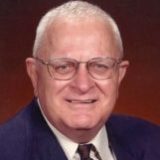 James E. Atwood is pastor emeritus of Trinity Presbyterian Church of Arlington, Virginia. A leader in the faith-based movement for good gun laws, he has served as chair of the anti-gun violence group Heeding God’s Call of Greater Washington, interfaith coordinator of the Million Mom March, and a member of the National Committee of the Presbyterian Peace Fellowship. Atwood is the author of America and Its Guns and Gundamentalism. He is the recipient of the 2018 David Steele Distinguished Writer Award by the Presbyterian Writers Guild and the 2019 Beard Atwood Award from the Coalition to Stop Gun Violence. He and his wife, Roxana, served as mission workers in Japan and now live in Harrisonburg, Virginia.
James E. Atwood is pastor emeritus of Trinity Presbyterian Church of Arlington, Virginia. A leader in the faith-based movement for good gun laws, he has served as chair of the anti-gun violence group Heeding God’s Call of Greater Washington, interfaith coordinator of the Million Mom March, and a member of the National Committee of the Presbyterian Peace Fellowship. Atwood is the author of America and Its Guns and Gundamentalism. He is the recipient of the 2018 David Steele Distinguished Writer Award by the Presbyterian Writers Guild and the 2019 Beard Atwood Award from the Coalition to Stop Gun Violence. He and his wife, Roxana, served as mission workers in Japan and now live in Harrisonburg, Virginia.
Excerpt is taken from From Collateral Damage: Changing the Conversation about Firearms and Faith by James E. Atwood. © 2019 by Herald Press, Harrisonburg, Virginia. Used with permission.

